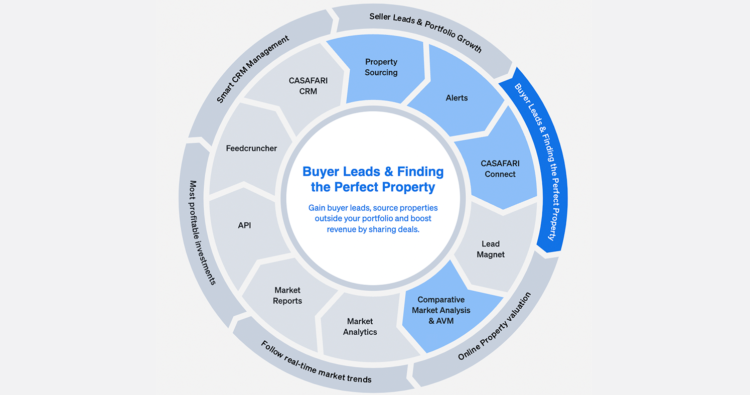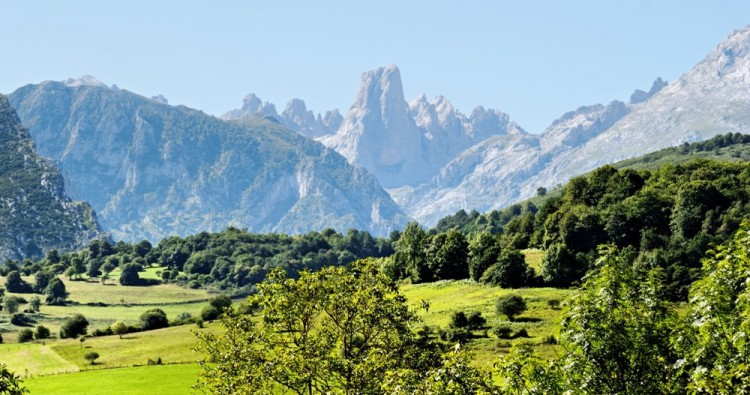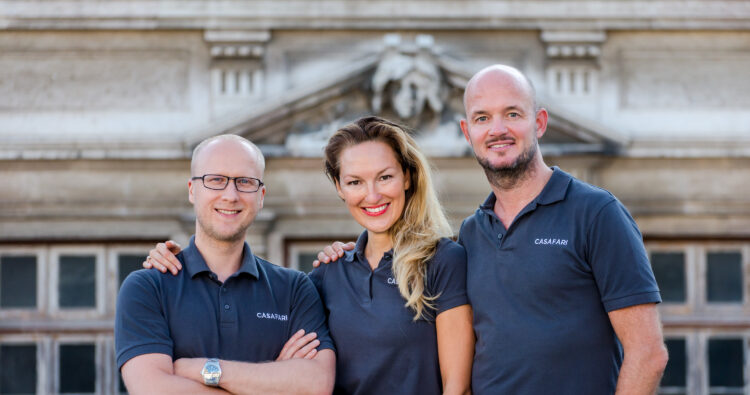In January 2017, Cláudia Menino became Project Manager at Grupo Laje Capital after over five years of experience in real estate and construction. In this interview with CASAFARI, read her insights on this year’s real estate trends and the sector’s openness to new technologies.
What has been your biggest success and biggest challenge as Project Manager at Laje Capital?
I don’t think there is one single moment of success or one single challenge at Laje Capital. In a job where we manage projects, the biggest success is having mini successes every day, being able to overcome your challenges and create solutions to get where you want to be.
I would even say that being a project manager is being a problem solver, since every day you are involved with so many people and entities whose interests are so different that it is hard to direct everyone’s efforts to just one objective.
That’s why it is the smaller battles that you overcome every day that pave the way to a project’s overall success. I think that’s what defines you as a project manager. And of course, being able to count on a good team.
How would you characterise your career trajectory at Laje Capital?
Right now, I am lucky to be surrounded by such a fantastic and competent team. It started by being very involved in a project and then having to develop it.
With those small successes that you have, the scope of the job suddenly gets bigger and you take on more responsibilities, which are challenging but they allow you to evolve and grow professionally.
I think my trajectory has been very positive; there have been difficulties and obstacles, but I think the overall outlook is positive. I hope to keep making the best impact I can in Laje Capital and in my projects.
What can we expect from the Portuguese property market in 2019?
This is always a difficult question, as no one can predict the future. I think that 2019 will continue with a positive trend. The Portuguese property market is going through a good phase at the moment.
We have already begun see signs that some real estate ventures are taking more more precautions, but I do think that there is reason to believe that this strong and dynamic market has a lot more to give. For example, foreign investment doesn’t seem to be slowing down – on the contrary, there are more and more buildings being constructed in Lisbon.
You also feel the effect of publicity that doesn’t just depend on one company or one project manager, but on what society as a whole has to offer, which gives us more visibility abroad and brings more people coming on Golden Visas and non-habitual resident investment schemes. Together with our level of safety, our sense of empathy towards people and the ease with which we integrate different cultures, these are all pull factors that will keep attracting investment in Portugal.
Another thing is the fact that banks have been giving Portuguese families the credit they need to start buying houses again and making investments that they couldn’t make a few years ago. However, I do think that there are some precautions being taken when it comes to investment.
At some point, measures that have already been put into practice in countries like Canada and New Zealand could start to be debated here, like imposing restrictive policies and more demanding tax regimes on foreign investments. Right now there is a huge discrepancy between what Portuguese people can afford in terms of property, which is a first-class priority, and what is actually being practiced.
This is why I think some of these measures might end up being debated in Europe and Portugal. Overall I think that there will continue to be a positive trend, but with a few warning signs in the kind of projects that are developed on put out onto the market.
How will the real estate sector have to adapt to Proptech?
This is also a good question. I think it’s obvious that Proptech is here to stay and that there is more to come. This is to be expected, as there has been this kind of evolution across all sectors, from information technology, for obvious reasons, daily city operations, all the way to the health system.
I think that the biggest adaptation will be the cultural exchange and how much people are going to have to learn. All across the real estate value chain we still have very traditional models, which can be seen as much in brokerages as property development and building inspection. I think that right now, it will be the project managers who head the advancement, as they already assimilating new technologies, like BIM (Building Information Modelling), for example.
Nevertheless, people in the sector will have to undergo huge training to adjust to the new technology, which will ultimately free them up for other tasks and responsibilities. I think that there will have to be a lot of training and openness to new ideas, but adjusting to Proptech is a no-brainer.
Have some agents shown resistance to Proptech?
Yes, and sometimes it has more to do with where in Portugal they work. There is a huge difference in Lisbon and Porto, and even in Coimbra, where things are a lot more developed and dynamic, possibly due to the strong presence of universities and technological innovation. People there are a lot more open.
If you want to launch a real estate venture that sells properties to people in the Alentejo, it is very unlikely you’ll be able to catch people’s attention with an app. It all comes down to who are you dealing with, what phase your project is in, what their background is and how open they are [to innovation].
This happens all across the value chain, not only in the sale or the project management – it depends a lot on the environment surrounding the project. But I think there are huge disparities in our country; there are people who are really open-minded and who want to innovate really quickly, and so there is still a mix.
What is one piece of advice you would give to new agents?
I would say good training, to start with. You have to understand the products you’re talking about, what you’re selling, what you’re buying and who you are helping.
Despite what many people think, real estate is not an easy sector. Every property is different: just because they’re next to each other, it doesn’t mean they’re the same. You need to know how to read the people who come looking to buy and sell, and you need to know a lot about the fields where you’ll have to be able to intervene and explain things.
There are things that need to change If you want to make certain transactions, you need to know how to explain and understand the fields you are navigating. You have to have good training, empathy with the client and, above all, honesty.
What is an insider tip for selling a property in winter?
Selling in other seasons is easier because winter makes any defects the property has stand out even more. I think that above all you have to treat the property right; it must be in good condition, no matter the time of year.
Also try catching a good time of day for lighting; it’s a lot harder to show a property at the very beginning of the day because the lighting isn’t bright enough or it is still foggy. Likewise, at the end of the day it is already dark. It’s best to show the property in the middle of the day when the lighting provides the most cosy atmosphere.
More on the blog: Interview with Pedro Fonseca






